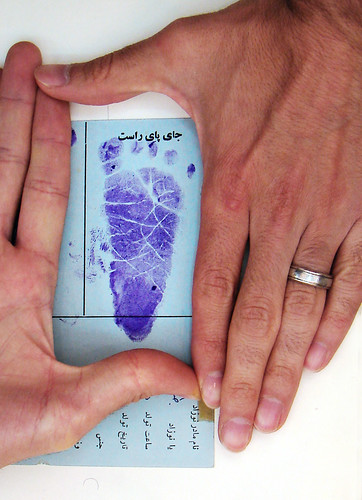We run our website the way we wished the whole internet worked: we provide high quality original content with no ads. We are funded solely by your direct support. Please consider supporting this project.
Is God Personal?
![]() Hamed Saber via Compfight
Hamed Saber via Compfight
How can we trust that God is personally involved in our lives? Are our seemingly “small” lives significant enough for God to get involved when you consider the vastness of all that goes on in the cosmos. These are common question raised by skeptics and seekers. In Letters from a Skeptic, Greg answers this question in a few ways. Here is one of them:
________________
The whole force of positing a personal Creator to explain our personal characteristics in the first place is derived from the fact that our personal characteristics (our moral convictions, our reason, our love, etc.) could not come about by accident!
Let me get at this by raising a set of different questions. Don’t our imperfect personal characteristics presuppose the existence of a perfect personal being?
For example, don’t our imperfect moral convictions presuppose the existence of a perfect moral standard? How else would we know ours is imperfect? And doesn’t our imperfect reasoning and knowledge presupposed the existence of a perfect “reasoner” and “knower”? If the Creator is not perfectly moral and perfectly knowing, against what is His imperfection measured? I would argue that the Creator, by definition, is the definition of what it is to be perfect. For nothing, by definition, could be above Him.
The gist of all this is that if we imperfect beings are morally outraged at the injustices which exist in our world, must not the creator be infinitely more outraged? If we hurt, out of love and moral conviction, for those whom we know suffer in our world, must not the creator hurt infinitely more? Would he not be less moral, less loving, less knowing than us if this were not the case? But if this were the case, the effect (us) would be greater than the cause (God), and this is impossible.
The enormity of the cosmos, and our smallness in relation to it, would only present a problem for God’s love and care if he were himself one product of it (an effect). But he’s behind the whole thing! His love and care is perfect, hence inexhaustible, and so whatever else he’s got going in the universe (and for all we know he may have a lot!), there’s plenty left over for us “small” human beings.
Thus I find it impossible to suppose that the ground of our personal characteristics (God) doesn’t personally care about us.
The implications of this for our understanding of ourselves is, I think, enormous. It means, that God knows you — perfectly (better than you know yourself). It means that God loves you — perfectly (more than you love yourself). And it means that God cares about your suffering and moral convictions — perfectly (more than you care about them yourself).
It also means that it makes sense to begin inquiring about what relationship our Creator wants with us. What are His purposes for our lives? What does He want with us? What can we know about Him? Has He revealed Himself to us at any point? These questions follow naturally once we understand that God is already personally involved in our lives.
Category: Q&A
Tags: Apologetics, God, Letters from a Skeptic, Love
Topics: Attributes and Character
Related Reading

Naturalism and the Historical Jesus
The quest for a “merely human” Jesus The various radical views of Jesus now being advocated by certain scholars and propagated through the press are buttressed by a number of different historical arguments. Some argue, for example, that the evidence from the first century suggests that Jesus was not unique in his healing ministry. Or,…

Podcast: What if Science Proved Jesus Did Not Rise From the Dead?
Greg responds to an accusation from Richard Dawkins and considers a hypothetical situation where scientists prove that Jesus did not rise from the dead. He also confesses which worldview he would adopt if he were to leave Christianity. http://traffic.libsyn.com/askgregboyd/Episode_0085.mp3

Who You Are Reflects the Kind of God You Worship
We always reflect the mental picture of God that we envision, for better or worse. If you have a fear-based picture of God, it will even affect the structure of your brain. You become the kind of person that you worship. If you have a threatening picture of God, you become threatening. If you have a…

Why Bart Ehrman Doesn’t Have to Ruin Your Christmas (Or Your Faith) Part 4
This is the fourth of several videos Greg put together to refute Bart Ehrman’s claims published in the article What Do We Really Know About Jesus? We hope you’re enjoying these! They really provide a great overall approach to Biblical Criticism. If you missed the first three installments you can find them here, here and here.

Did Jesus Have Two Minds?
As I laid out in the previous post, I believe Jesus is fully God and fully human. The question is: How is this possible? How do we talk about the way that Jesus was fully God and fully man? The Creed of Chalcedon (451) tries to answer the question this way: We, then, following the…

Welcoming Strangers
Zack Hunt shared this video over on his website and we loved it so much that we wanted to share it as well. There are many opportunities to demonstrate the reality of God to the world around us, if we’ll only start to open our eyes and hearts. How might God be inviting you to put his…

